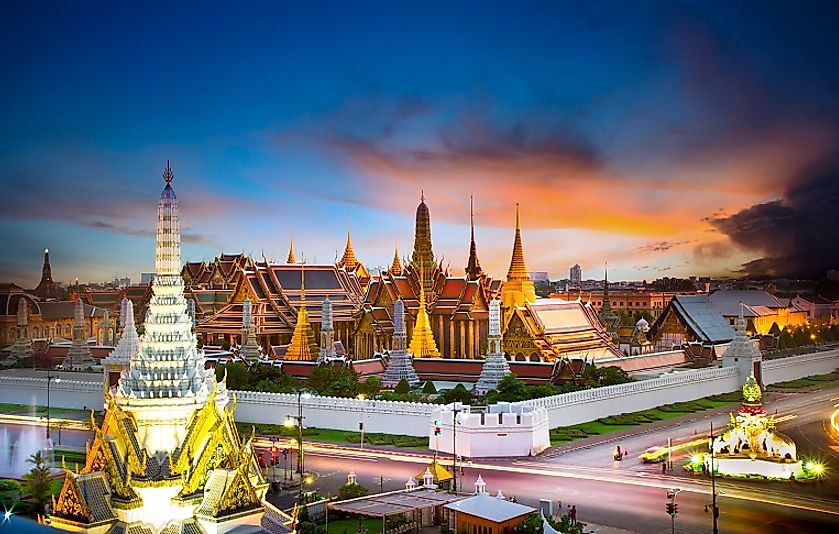Major Religions in Thailand

Thailand is a country found in southeast Asia. It is the 20th most populous country in the world with a population of around 65 million people. There is no official religion in Thailand and the Thai constitution guarantees freedom of worship and religious gathering in the country. However, the king is constitutionally required to be a Theravada Buddhist.
There are several religious groups in Thailand including Buddhism, Hinduism, Taoism, and Sikhism among other religions. Some of the religions practiced in Thailand do not have official recognition despite being practiced openly and freely in the country. The religious identity in Thailand is complex with the major religious groups such as Buddhism further divided into other sub-groups. The various religious beliefs in Thailand today are looked at below.
Buddhism - 93.58%
Buddhism is the most common religion practiced in Thailand. The Buddhism practiced in Thailand is associated with Theravada practices. Folk religious practices have also been integrated with the Buddhism. The development of Buddhist in Thailand has been influenced by three major forces. The first major influence is the Theravada school of Buddhism which was imported from Sri Lanka. The Theravada has influenced the Buddhism in Thailand especially in areas of language, sacred liturgy, and scriptures, which all involve the use of Pali. The second major influence on Buddhism in Thai is the Hindu belief which was received from Cambodia during the Sukhothai Kingdom. The Hindu practices influenced the institutions of Kingship in Thailand and are still practiced today by the monks. The Hindu practices have also influenced Buddhist institutions and ceremonies. The third major influence on Buddhism is the folk religion. Thai Buddhist has adopted some of the folk religion including belief to attract favor from the spirits as part of their religious practices. Buddhism has a major influence on the Thai society including in elections where communities of other religions are not allowed to elect or to be elected to any government post.
Islam - 4.94%
Islam is considered to be a religious minority in Thailand, with 4.94% of the population identifying with it. Most of the Thai Muslims belong to the Sunni group and mainly occupy the provinces Yala, Pattani, and Narathiwat. The Thai Muslims are diverse with most of the ethnic groups migrating from Malaysia, Cambodia, China, Pakistan, Bangladesh, and Indonesia. The majority of Thai Muslims are recent converts, Muslims through intermarriage, or hereditary Muslims. The Islamic faith in Thailand is integrated with Sufi beliefs just as it is in several other Asian countries. Thailand has over 3,000 mosques with the largest number in Pattani. There are also several Islamic schools, banks, shops, and other institution.
Christianity
Christianity in Thailand began through missionary work by the European missionaries in the 16th Century. By 1660, the first Vicariate Apostolic of Siam was established by the Portuguese and the French. The protestant group established themselves in the country in 1828 in Bangkok. Christianity has since spread in Thailand with 1.1% of the population being Christians. The major Christian groups in Thailand include Roman Catholicism, Protestantism, and Orthodoxy. Christians are making a significant contribution in the country today especially in the areas of health and education.
Religious Beliefs In Thailand
| Rank | Religion | Population (%) |
|---|---|---|
| 1 | Buddhism | 93.58 |
| 2 | Islam | 4.94 |
| 3 | Christianity | 1.20 |
| 4 | Other | 0.11 |
| 5 | Irreligious | 0.07 |
| 6 | Hinduism | 0.06 |
| 7 | Sikhism | 0.02 |
| 8 | Confucianism | 0.02 |











